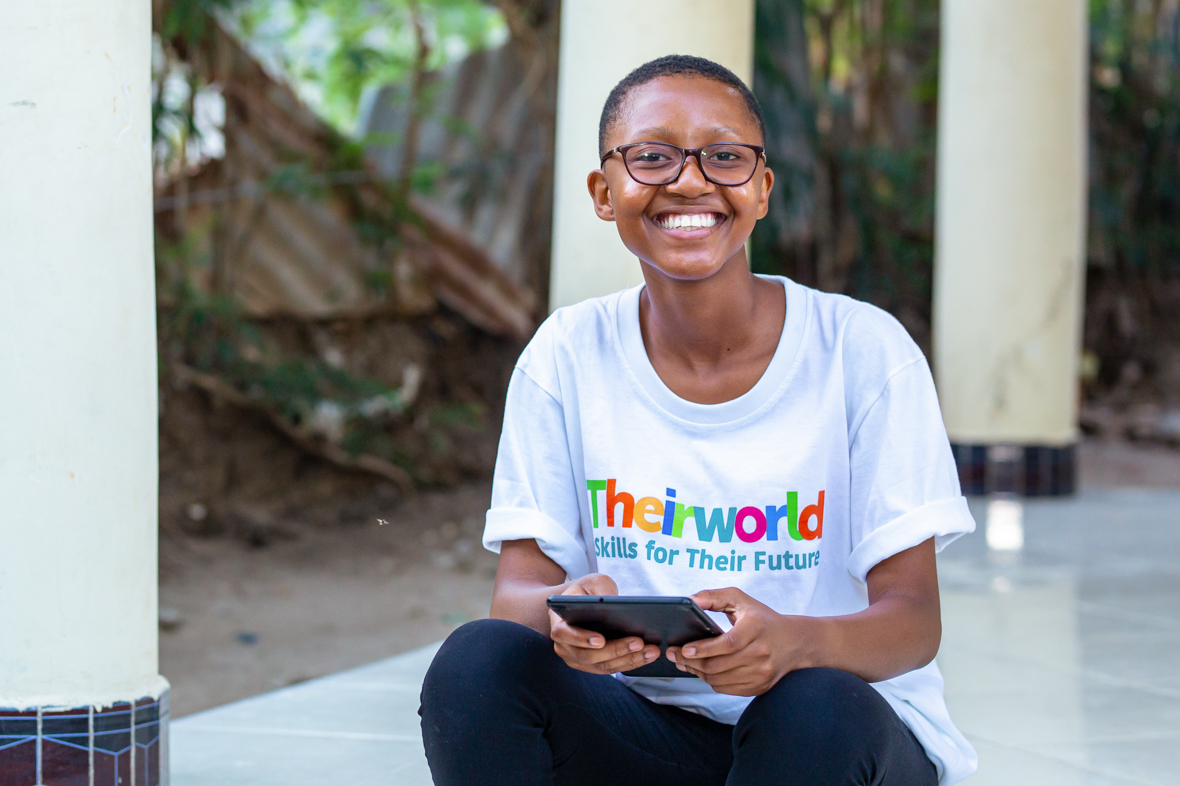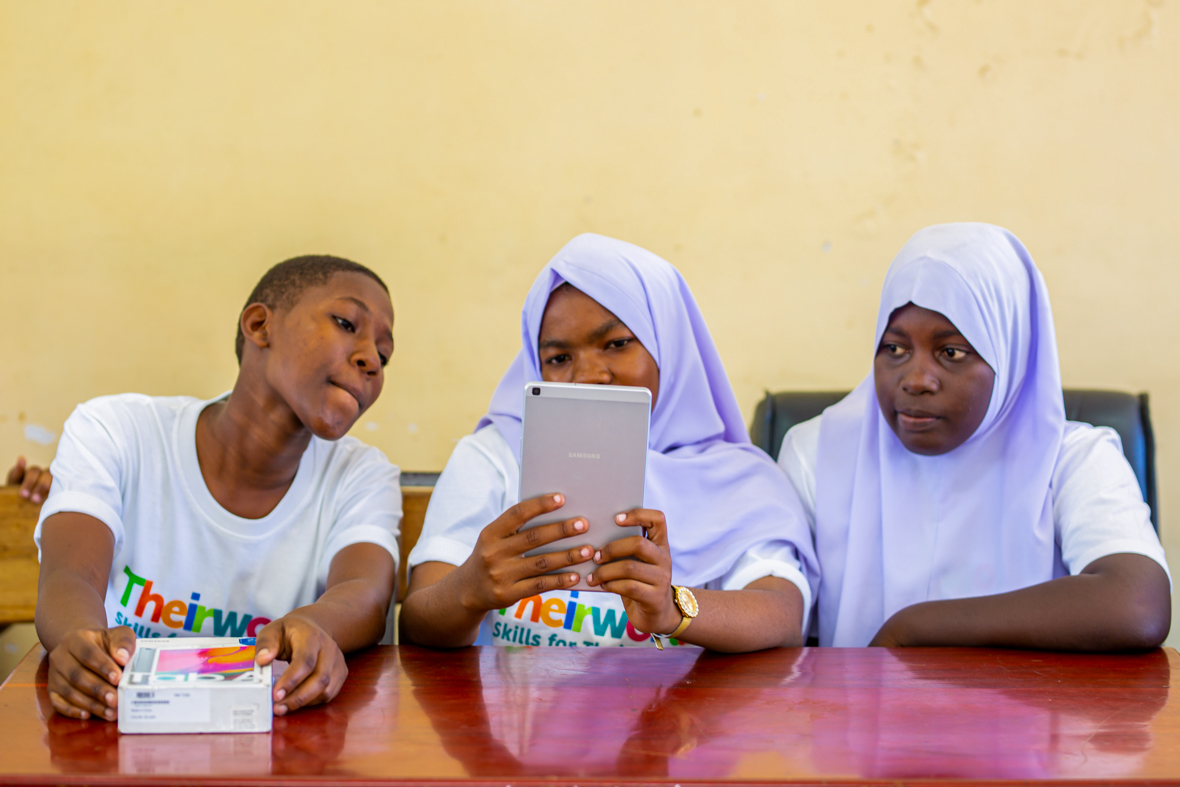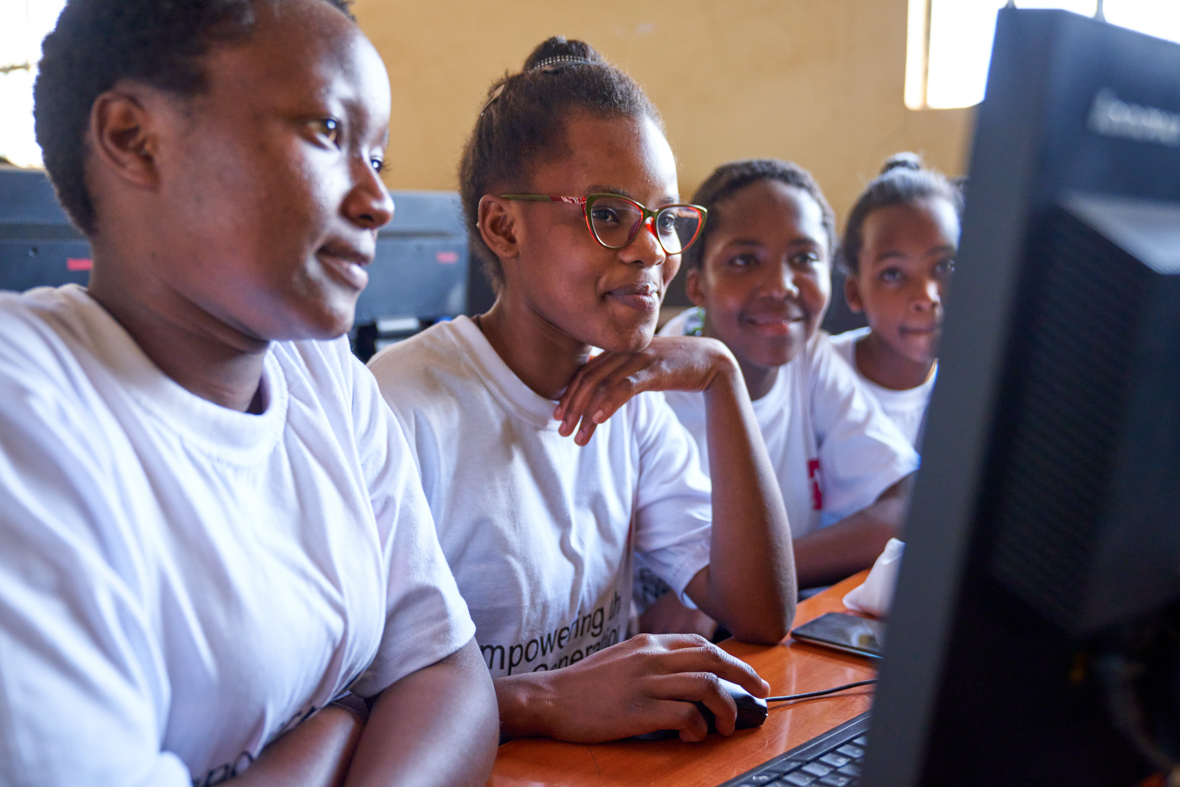132 million
girls around the world are out of school
In 2016 Theirworld began its Code Clubs initiative in several parts of sub-Saharan Africa. We worked with local partners to teach girls a programme in online coding, as well as provide access to numeracy, literacy, art and music to support their formal education. They also received a healthy snack during the class to help their energy levels and improve concentration.
The programme reached girls in Tanzania, Uganda, Zimbabwe, Kenya and Nigeria, before expanding further to help young Syrian and Palestinian refugee students in Lebanon. By the end of 2018, 1,300 girls and young women had been trained in coding as a result of Code Clubs.
In 2019 Theirworld embarked on an ambitious initiative. We created a dedicated Digital Literacy Curriculum with a view to being able to help young people all over the world gain access to digital skills. Aimed at the 16-20 age range, the curriculum takes students through a range of topics, including making the most of productivity tools, using email and social media and staying safe online. Alongside this they receive guidance on career pathways they may want to pursue.




